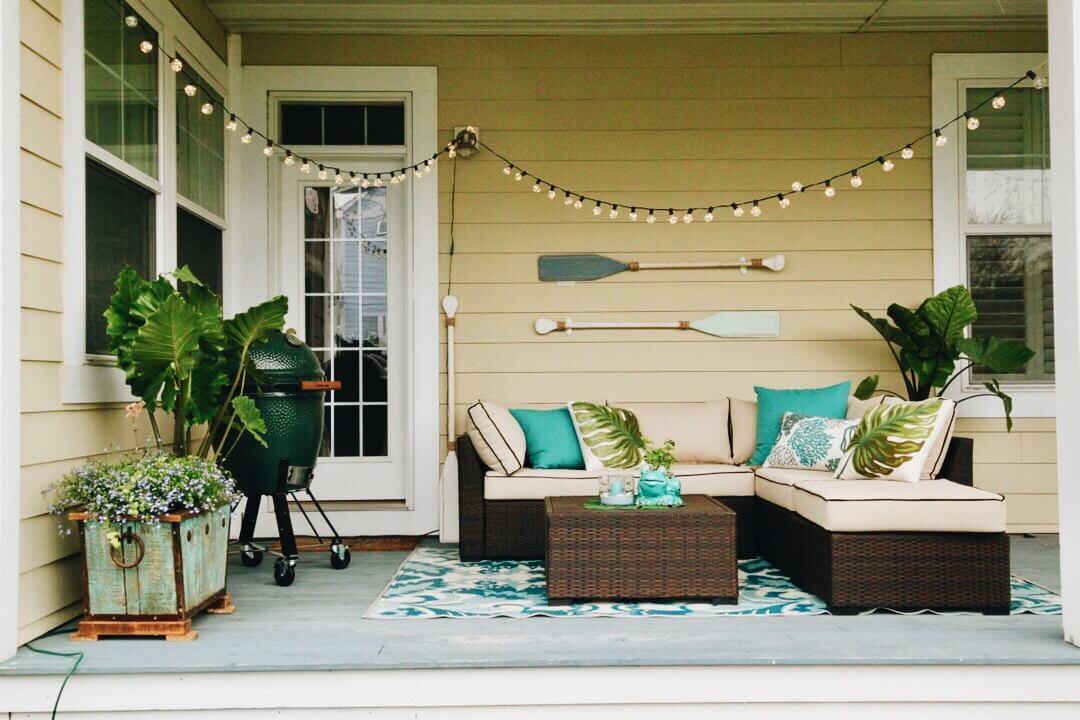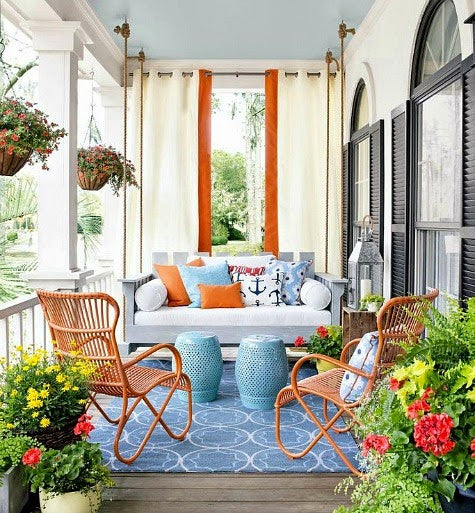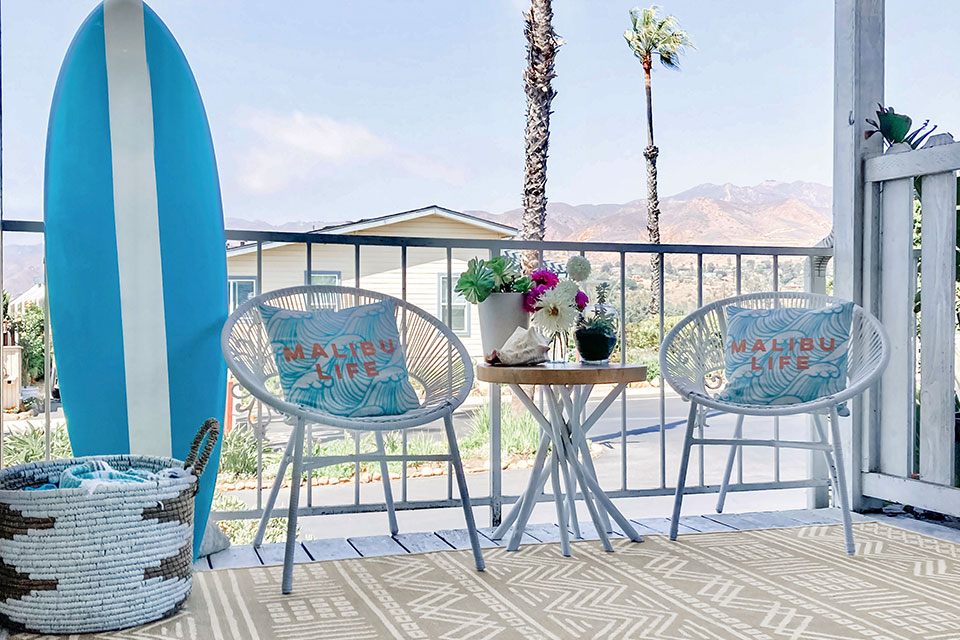As someone who’s always had a love for the sea, I found that coastal decor isn’t just about aesthetics; it’s about creating an atmosphere that soothes the soul. Whether you live near the coast or dream of the ocean, outdoor coastal decor can transform your space into a seaside sanctuary. In this comprehensive guide, we’ll dive into various facets of coastal decor, from the best materials to use, to tips on achieving that perfect beach vibe.
Understanding Coastal Decor
Before we delve into the specifics, let’s define what coastal decor is all about. Coastal decor is a style that draws inspiration from the ocean and seaside surroundings, encompassing elements such as beach-themed color palettes, natural materials, and marine motifs.
The Elements of Coastal Decor
Coastal decor can be broken down into several key elements:
- Color Palette: Soft blues, sandy beiges, and crisp whites.
- Materials: Natural fibers, driftwood, and weathered metals.
- Textures: Light fabrics, woven materials, and rustic finishes.
Choosing the Right Color Palette
The color palette you choose plays a pivotal role in setting the tone for your outdoor space. Here are some popular coastal color schemes:
Beachy Blues and Whites
This classic combination evokes the feel of ocean waves and sandy beaches. Pairing soft blues with bright whites creates a refreshing and airy atmosphere.
Soft Neutrals
Incorporating taupe, beige, and off-white shades into your decor mimics the look of driftwood and sand, offering a more subdued coastal vibe.

Color Comparison Table
| Color Scheme | Best Used In | Vibe |
|---|---|---|
| Beachy Blues and Whites | Poolsides, Patios | Refreshing, Crisp |
| Soft Neutrals | Balconies, Gardens | Subdued, Cozy |
Furniture Selection for Outdoor Coastal Decor
Choosing the right furniture is crucial for achieving the desired coastal look. Here are some tips based on my personal experience.

Materials that Shine
Opt for weather-resistant materials that can withstand the elements. Examples include:
- Teak Wood: Durable and naturally water-resistant.
- Wicker: Lightweight and offers a casual feel.
- Metal: Stainless steel or aluminum for longevity.
Pros and Cons of Common Outdoor Furniture Materials
| Material | Pros | Cons |
|---|---|---|
| Teak Wood | Durable, Naturally resistant to moisture | Higher cost |
| Wicker | Lightweight, Casual aesthetic | May require more maintenance |
| Metal | Durable, Modern look | Can get hot in the sun |

Accessorizing Your Outdoor Space
Accessories are the finishing touches that bring your outdoor coastal decor to life. Here are some ideas to consider:
Textiles: Cushions and Throws
Outdoor textiles are both functional and aesthetic. Choose fabrics that are fade-resistant and easy to clean. Look for patterns featuring seashells, waves, or nautical stripes.

Decorative Elements: Art and Ornaments
Incorporate items that reflect your coastal theme. Think about:
- Driftwood sculptures
- Glass lanterns
- Wind chimes
Greenery: Coastal Plants
Plants can enhance the coastal feel of your space. Choose hardy, drought-resistant plants that thrive in coastal environments. Some great options include:
- Sea Oats: Perfect for sandy areas.
- Beach Strawberry: Adds a pop of color.
- Succulents: Low maintenance and stylish.

Lighting for the Perfect Ambiance
Lighting can dramatically change the feel of your outdoor space. Here are some ideas that work well with coastal decor:
String Lights
Hang string lights to create a warm, inviting atmosphere. These are perfect for summer nights spent outdoors.

Lanterns
Use lanterns made from wood or metal for a rustic touch. Battery-operated options are great for safety.
Creating Zones in Your Outdoor Space
To make the most of your outdoor area, consider dividing it into functional zones. This makes it feel more inviting and organized.

Relaxation Zone
Create a cozy nook with comfortable seating, cushions, and side tables. This is where you can enjoy morning coffee or evening chats.
Dining Zone
If you love to entertain, a dining zone will be perfect. Choose a sturdy table and chairs that complement your coastal theme.
Activity Zone
Consider adding a space for games or activities. This could be a small area for playing beach volleyball or a space for yoga.
Maintenance Tips for Coastal Decor
Living by the coast can wear down outdoor decor over time. Here are some personal tips for maintaining the beauty of your space:
Regular Cleaning
Dust and clean your furniture and textiles regularly to prevent buildup and damage from salt air.
Protection from Elements
Use covers for your furniture during harsh weather or choose pieces that can be easily moved indoors.
Inspiring Coastal Decor Ideas
If you’re in need of inspiration, here are a few concepts I’ve personally found effective:
Beachy Balconies
Even small spaces can benefit from coastal decor. Use space-saving furniture and add vertical planters for a lush look.
Seaside Patios
Transform your patio with larger furniture pieces, vibrant textiles, and decorative items like seashells and coral.
FAQs About Outdoor Coastal Decor
What colors are best for coastal decor?
Soft blues, whites, and sandy neutrals are ideal as they mimic the colors found in coastal environments.
How do I maintain outdoor coastal furniture?
Regularly clean your furniture, store it indoors during bad weather, and use protective covers.
Can I incorporate coastal decor in a small space?
Absolutely! Use space-saving furniture and vertical planters to maximize your area while keeping the coastal theme.
Final Thoughts
Outdoor coastal decor is more than just a style; it’s a way to express a love for the sea and create a haven of relaxation. With the right colors, materials, and accessories, you can transform any space into your personal beach retreat. So go ahead, embrace the coastal vibes, and make your outdoor area a reflection of your love for the ocean!